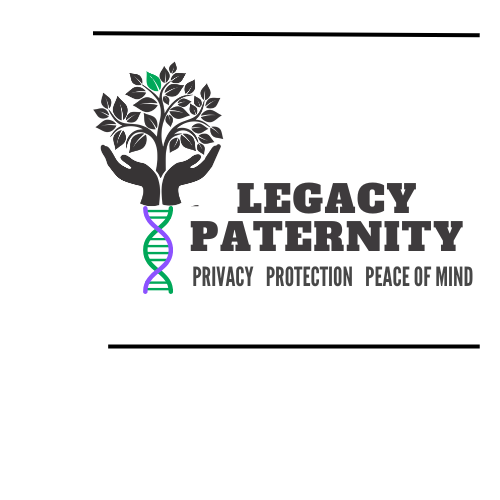CALL US TODAY!
(888) 994-18350
Equitable. Progressive. Inventive.
Financial Legacy for All
Did you know? Notary Public facts…
Angelina Griffin • September 29, 2022
- Did you know that wills and power of attorney documents require a notary in most states? With so many DIY contracts available for these purposes which can be downloaded online, it is important not to forget that these contracts often need to be notarized before they can be accepted in court.
- While recording laws and important documents has been traced back to ancient Egypt, experts say the first notaries appeared about 2,500 years ago in the ancient Roman Empire. Notaries prepared documents such as wills and contracts for citizens and were paid for their work.
- During the Dark Ages, the majority of the population was illiterate, but that didn't change the fact that key legal documents had to be in writing. Notaries, or scriveners, would write out wills, contracts, and other important documents, but would also be used for keeping records.
- Notaries in England in the 13th and 14th centuries were often clergymen and at one point were appointed by the Archbishop of Canterbury. In the centuries that followed, notaries recorded documents that formalized sales, wills or other private matters.
- Did you know that a notary public’s job isn’t simply limited to verifying the signatures on documents? In some cases, a notary may be charged with the verification of the document’s content as well.
- Have you ever heard of a jurat? This is a common document that requires a notary seal and signature. Often, it is an affidavit or deposition that is to be used in as part of a civil or criminal proceeding. A jurat may also include an oath further confirming the information included in the document.
- Which president was the only president in history to be sworn in by a notary? Calvin Coolidge. In 1923, after the death of Warren G. Harding, Vice President Calvin Coolidge was sworn into office by his father, John Coolidge, who was a Vermont Notary Public.
- What is the Notary Public Code of Professional Responsibility? It is a document, used by the National Notary Association, which helps to outline the responsibilities of notaries. The Notary Public Code of Professional Responsibility is an essential tool for all U.S. notaries too.
- Before a document can be notarized, it must be complete (other than signatures), and any omissions must first be addressed. It is prohibited by law for a notary public to notarize an incomplete document, so double check before presenting it. This includes a Marriage License. We do marriage licenses too!

November 10, 2023
Recently, I watched a video on Youtube featuring Gospel music sensation Kirk Franklin, as he revealed in a short documentary a story about his childhood and not being raised by his biological parents, and not knowing who his birth father was the majority of his life. His story was hearbreaking because he shared that the man he thought was his birth father, he had resented, and shared his resentment towards him on his alleged father's death bed. But years later gets the news that his birth father could still be alive. After doing a DNA Paternity test, the results were 99.99% that this man and Kirk Franklin shared DNA. He was the father! Actress Keri Washington also shared her story about finally learning after an ancestry DNA test experiment, that her known father was not her biological father. So many family secrets. As ancestry DNA models become more accessible, like Ancestry.com and 23 and Me to name just a couple, the truth comes to the light. When it comes to uncovering family histories and legacies, paternity DNA testing has become a powerful tool, even in cases involving deceased individuals. In this blog, we'll explore the benefits of postmortem paternity DNA testing and how it can impact the legacy of a family. The purpose of this blog is just FYI. Most people don't know Postmortem DNA Testing is an option. And as a legacy building advocate, providing this insight is imperative. Part I The Power of Postmortem Paternity DNA Testing Resolving Family Mysteries : Paternity DNA testing after a person's passing can help solve long-standing family mysteries. It provides clarity on relationships and lineage, answering questions that may have lingered for generations. Confirming Biological Connections : For families with doubts or questions about parentage, postmortem paternity testing can confirm biological connections definitively. This knowledge can be crucial for emotional closure and understanding one's heritage. Legal Implications : In some cases, postmortem paternity testing can have legal implications, particularly concerning inheritance, wills, and estates. It can help establish rightful heirs and beneficiaries according to the law. Preserving Family History : Genealogy enthusiasts and historians often turn to DNA testing to preserve and document their family history. Postmortem testing can add missing pieces to the puzzle, creating a more comprehensive and accurate family tree. Connecting with Relatives : DNA testing, even postmortem, can lead to unexpected discoveries of living relatives. These newfound connections can be incredibly meaningful, bringing families closer together despite the passage of time. Postmortem paternity DNA testing is a valuable resource for families seeking to unlock the mysteries of their heritage and establish biological connections, even after the passing of loved ones. It can have far-reaching effects, from providing emotional closure to preserving cultural legacies and strengthening family bonds. In the quest to understand and honor our family histories, DNA testing plays a pivotal role in shaping our legacies for generations to come.
BROWSE OUR WEBSITE
CONTACT INFORMATION
Call:
Text:
(813) 360-1665
Email:
Mailing Address:
7901 4th St N # 22236, St. Petersburg, FL 33702
By appointment only






Content, including images, displayed on this website is protected by copyright laws. Downloading, republication, retransmission or reproduction of content on this website is strictly prohibited. Terms of Use
| Privacy Policy

